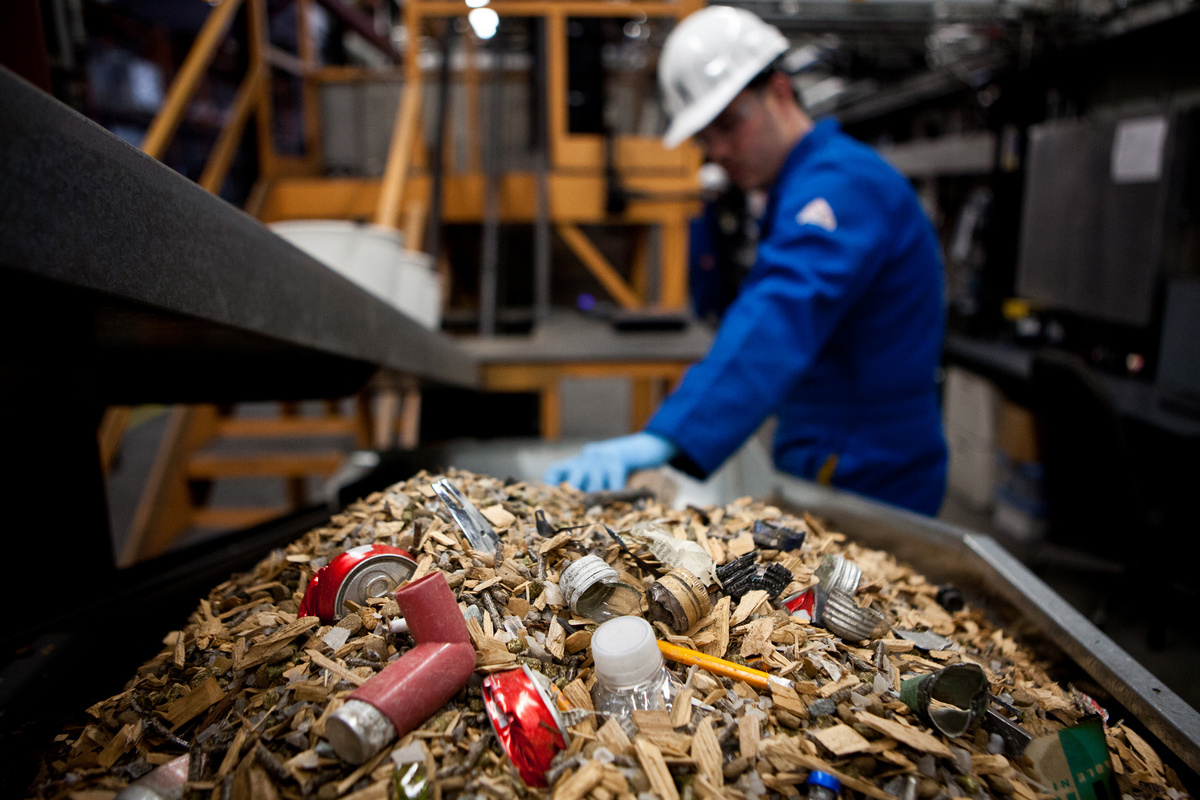
Plastic caps are separated from the package and sorted separately as plastic waste. The package consists of a cardboard exterior and a thin metallized film inside. These are separated later at the warehouse of the company that processes recyclable materials.
"Tetra Pak cartons are almost never accepted because they are very difficult to recycle", - explains Rostyslav Triska, co-founder of the company TOP-ECO, which operates in Lviv oblast. "But it has to be done".
TOP-ECO will send the plastic and cardboard for recycling to a suitable facility.
For most residents, even in communities served by Triska's company, this is just garbage. Garbage is something you are eager to get rid of. You don’t want to think about its further journey or life cycle. You don’t want to take responsibility for it.
Among those who do sort their waste, many don’t want to know that not everything can be recycled.
"One of our recyclers accepts black mascara but not shiny ones, because its contents won’t melt along with everything else. The same goes for metallized layers, such as on chocolate wrappers", - says Hanna Prokaieva, founder of the public organization Kharkiv Zero Waste.
The recycling rate in Ukraine is about 10%, with the rest ending up in landfills, the overwhelming majority of which are illegal. In European Union countries, the situation is roughly the reverse: about 90% of waste is recycled, with only a small portion incinerated.
By choosing European integration, Ukraine is committing to the same path. A fundamental shift in waste management approaches is one of its integration obligations.
Without much public or media attention, the reform has already begun.
"This is a good cause"
The Kharkiv Zero Waste movement started more than 10 years ago with an annual nationwide campaign to clean up illegal dumpsites called Let’s Do It Ukraine.
Realizing that most of the trash in Ukrainian parks, forests, and near water bodies consisted of single-use plastic bags, Hanna Prokaieva opened a mobile collection point for such bags in Kharkiv. Along the way, they also began accepting other types of packaging waste.
The mobile collection point for recyclables transformed into a stationary eco-hub. Within a few years, there were six of them. They accepted around 40 types of recyclable materials, which Kharkiv-based companies collected for recycling.
“In Kharkiv, we sorted everything”, - Hanna recalls. “It was cool; it was trendy”.
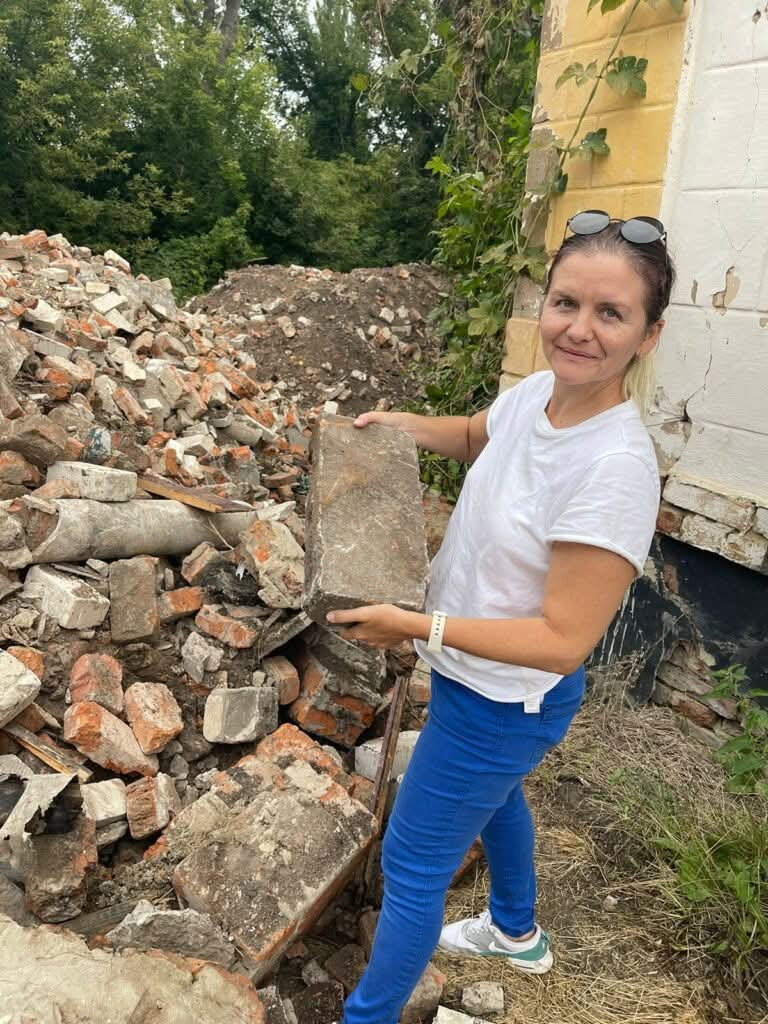
Hanna Prokaieva. Photo from the Facebook page of Kharkiv Zero Waste
To the idea of sorting waste, they added the concept of reuse: the hubs began accepting unwanted items from owners, which other people could take for free or for a symbolic donation.
An eco-store was opened, offering reusable goods made from natural materials, such as cotton bags or bamboo toothbrushes.
Prokaieva and her colleagues were invited to conduct training sessions and consultations in Kharkiv-based companies. In early February 2022, Kharkiv Zero Waste also opened an office in a shopping mall in Dnipro, where they were invited to teach local businesses how to reduce and sort waste.
They even found an entrepreneur willing to use the same metallized wrappers in production—by filling beanbags with them.
An experiment was conducted beforehand: for three months, wrappers were collected across Ukraine. These wrappers were used to fill ten beanbags, which were sewn from old jeans. The beanbags were donated to a local library.
Anna mentions that she had a meeting scheduled with the interested entrepreneur on February 28, 2022.
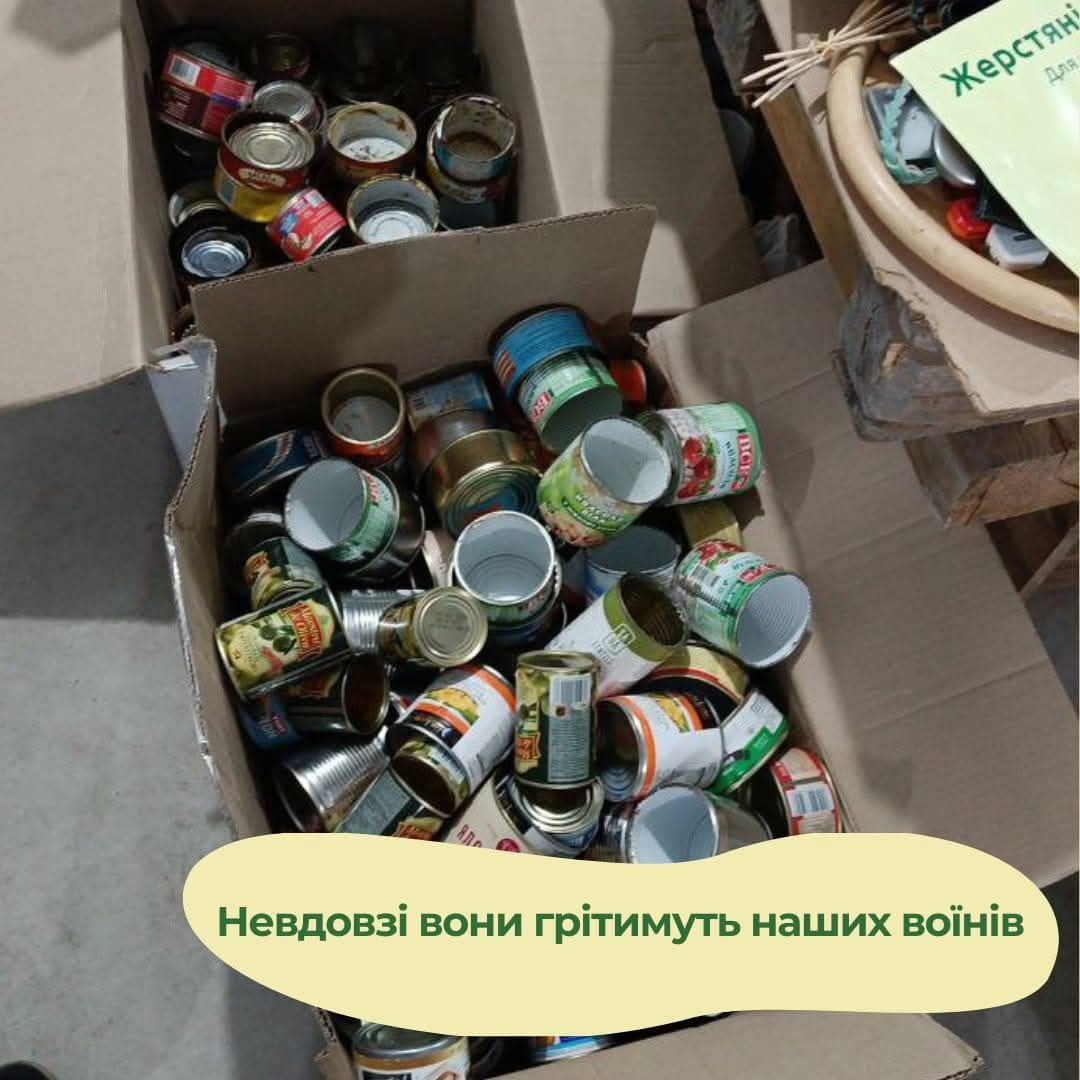
Photo from the Facebook page of Kharkiv Zero Waste
In the same year, 2017, when Hanna Prokaieva opened the mobile recycling collection point in Kharkiv, Yurii Nazar received an intriguing proposal from a town council deputy in the Lviv oblast.
A deputy had observed how, in small towns abroad, residents sorted recyclables into special colored bags, which were then collected for recycling. Preparing for local elections, he wanted to make waste sorting and recycling a part of his campaign.
Yurii, who already had experience in the field of recycling, accepted the proposal. This led to the creation of the public organization Green Life.
After the elections, the deputy, who became the head of the town council, lost interest in the project. However, Yurii managed to expand it and make it self-sustaining.
Before the full-scale invasion, Yurii and his partner summarized their interim results: “If calculated in cubic meters, we processed around 50 train cars’ worth of material that people usually either throw away as trash, burn in their gardens, or, unfortunately, dump in nearby forests, ditches, or bodies of water”.
He emphasizes that this is still not a business: Green Life earns up to 5,000 hryvnias ($120) per month, which is saved to repair vehicles or buy sorting bags.
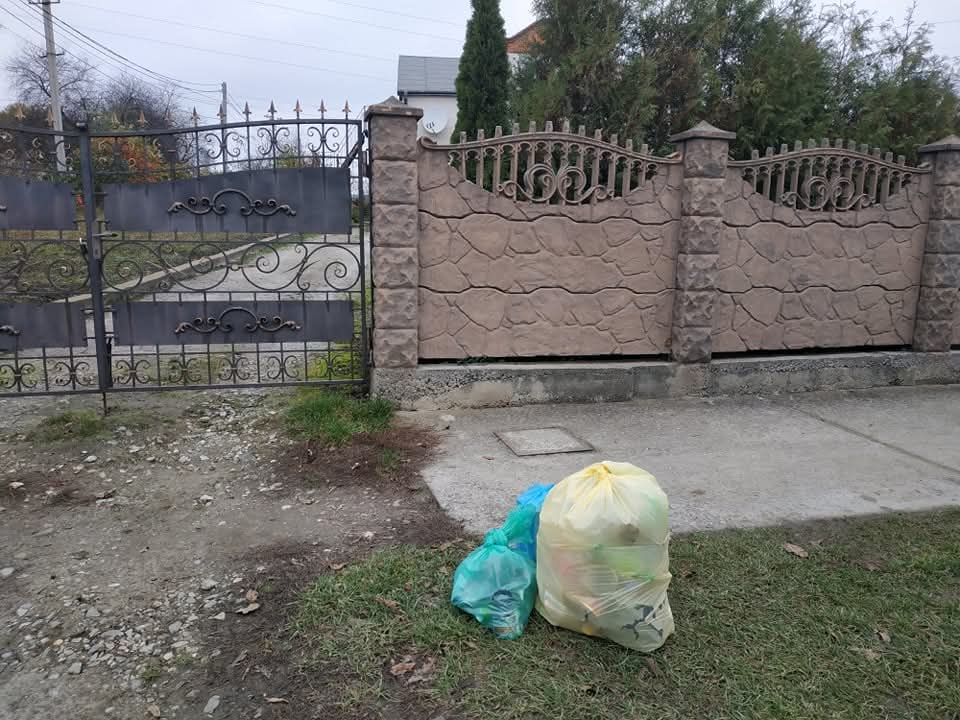
Sorted waste ready for transport. Photo from the Facebook page of Green Life
Bohdan Triska and his son Rostyslav joined Green Life in their village of Zymna Voda, located on the opposite side of Lviv. “I once dreamed that this would spread across all of Ukraine, that everyone would sort their waste, that everyone would see the need for it”, - Yurii Nazar says.
According to Rostyslav, he and his father initially focused on how to efficiently manage waste in their own home. They looked at how the problem was being addressed in neighboring Poland.
Today, their own company, TOP-EKO, collects recyclables from five territorial communities and one village in the Lviv oblast.
Waste sorted into three bags—plastic, glass and metal, and paper—is further divided into more fractions at their sorting facility and then sold, like Green Life, to recyclers or preparers.
“We plan to make the Lviv oblast one of the exemplary oblasts in Ukraine. We are, after all, part of the West, quite close to the EU, and we want to show by example that sorting waste is possible, necessary, and even beautiful. It’s cleanliness, order, and a completely different level of culture”, - says Rostyslav Triska.
“This is a good cause that benefits everyone and aligns with what the entire civilized world does”, - notes Yurii Nazar. “But it needs support”.
Reform on paper
Reforms in waste management that began in Ukraine in 2018 progressed not only through successful initiatives by public organizations and, perhaps, not even primarily through them.
The outdated waste management system might have been overlooked for some time if not for a tragedy at one of the country’s largest landfills near Lviv in 2016.
In May 2016, a fire broke out at the landfill, leading to a landslide and the collapse of a massive amount of accumulated waste. Three rescuers attempting to extinguish the fire died under the debris.
The landfill, which already had a grim reputation for polluting water and soil in nearby villages, was finally slated for reclamation in 2020. In Lviv, a waste processing plant began construction, and separate containers for collecting organic waste were introduced.
Even earlier, in 2018, new regulations under the “Law on Waste” came into effect, requiring local authorities to ensure waste sorting and its transportation for recycling.
In 2023, a new framework law, “On Waste Management”, replaced the “Law on Waste”, introducing several new approaches in this area.
One of these approaches is producer responsibility, requiring manufacturers to manage the collection and recycling of their own packaging, as seen in EU countries. There, the cost of a beverage includes a kind of deposit refunded to consumers upon returning the bottle.
Supermarkets install special machines for this purpose, which accept containers and issue a receipt with the deposit amount. This receipt can then be used to pay or offset the cost of purchases.
For Ukraine, however, this remains a distant prospect. The Cabinet of Ministers and the Verkhovna Rada are gradually adopting decrees and laws to implement the provisions of the framework law, but the process is moving quite slowly.
For example, the draft law on producer responsibility was submitted back in October 2023, but it has yet to even be reviewed.
Another issue is the implementation of already adopted regulations. Separate waste collection, for instance, has not been fully implemented since its introduction in 2018.
Ideally, residents should only pay for the removal of a small portion of waste that cannot be recycled, says Hanna Prokaieva. This is how the system works in the EU.
This waste excludes materials sorted into separate containers. In EU cities, these containers are not limited to three but include 6-7 types for various kinds of recyclables, in addition to machines for collecting glass, plastic, and metal beverage containers.
Ukraine is still far from having such an advanced infrastructure.
Some communities have begun implementing separate waste collection and even launched local recycling initiatives. Others continue to dump all waste together and haul it to landfills.
They claim they lack the funds for separate collection containers or sorting lines or that they have nowhere to send sorted materials for recycling.
Rostyslav Triska notes that not all community residents even have contracts for waste removal, despite it being mandatory. As for mandatory separate collection, most aren’t even discussing it, despite proposals from companies like TOP-ECO.
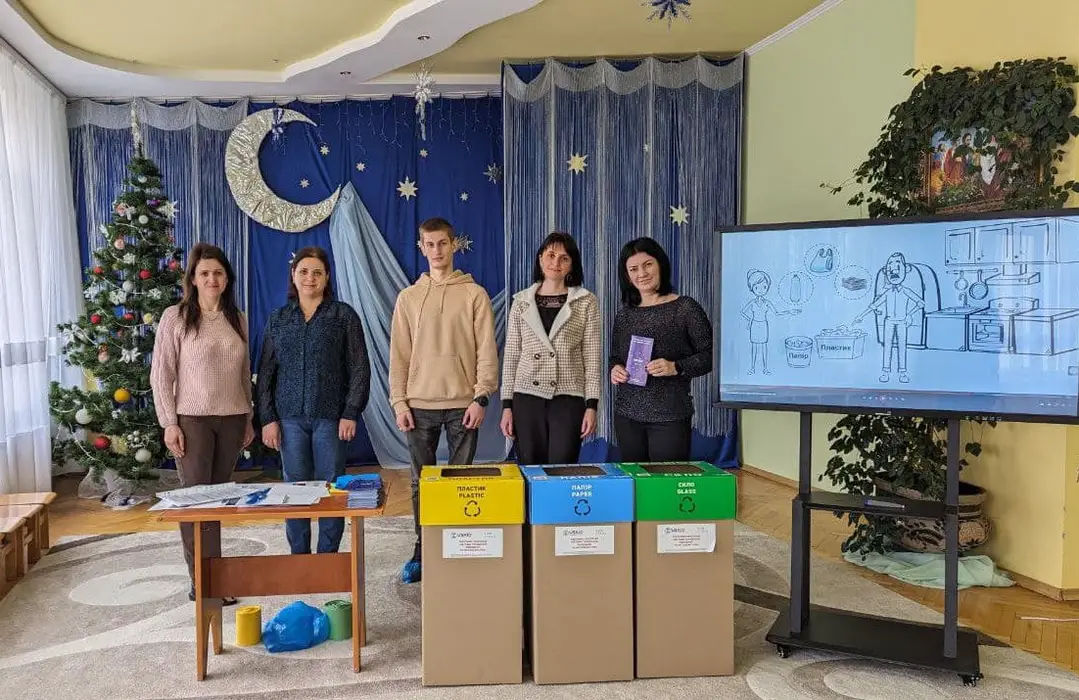
Introducing waste sorting in schools in the Obroshynska community in the Lviv oblast. Photo from the Facebook page of Obroshynska community
The cost of recyclables in Ukraine remains very low, making it unprofitable for many to collect and submit them. On the other hand, there’s the issue of their quality.
The key factor is communication
Dealing with waste requires both learning and teaching. Yurii Nazar from Green Life says his organization needed about two years to teach both the community’s residents and its own employees proper sorting and acceptance of recyclables.
“When we started, we had a small van with a capacity of 7-8 cubic meters, but we ended up throwing away half of what we collected. Recycling facilities have specific requirements for recyclables. For residents, anything made of plastic was just ‘plastic’, but there are dozens of types of plastic. Not all types can be recycled here”, - explains Yurii.
Residents received explanations in special chats, over the phone, and in person during the collection of sorted waste. Now, only about five percent of the collected materials are non-recyclable, says Yurii.
Companies engaged in recycling use expensive, high-tech equipment, which would be damaged by low-quality recyclables. As a result, they only accept recyclables from trusted suppliers, often from abroad, where well-organized systems ensure quality.
“Waste must be very carefully sorted and prepared: washed, dried, and shredded into a specific fraction”, - Yurii explains.
When Kharkiv Zero Waste attempted to set up recyclable collection not only in Kharkiv but also in a smaller town in the Kharkiv oblast, local residents didn’t understand them.
“We suggested exchanging recyclables for clothing to show people that recyclables are a resource. They were wary of us”, - recalls Hanna Prokaieva.
The eco-hub opened in the town had to be closed. Instead of promoting separate waste collection, the activists shifted to an informational campaign.
First, they analyzed the composition of waste in street and household containers. It turned out that about 40 percent of it was organic.
“We developed a plan prioritizing the separation of organic waste because it contaminates valuable materials. We installed a composter. We communicated with the community, but not thoroughly enough, as people began bringing organic waste in plastic bags”, - Hanna explains.
“We revised the informational visuals, made it clear that bags were not allowed, and installed three more composters at the housing cooperative. Now, residents are tracking how many buckets of organic waste they’ve added to the composter so they can collect their compost for gardens in spring”.
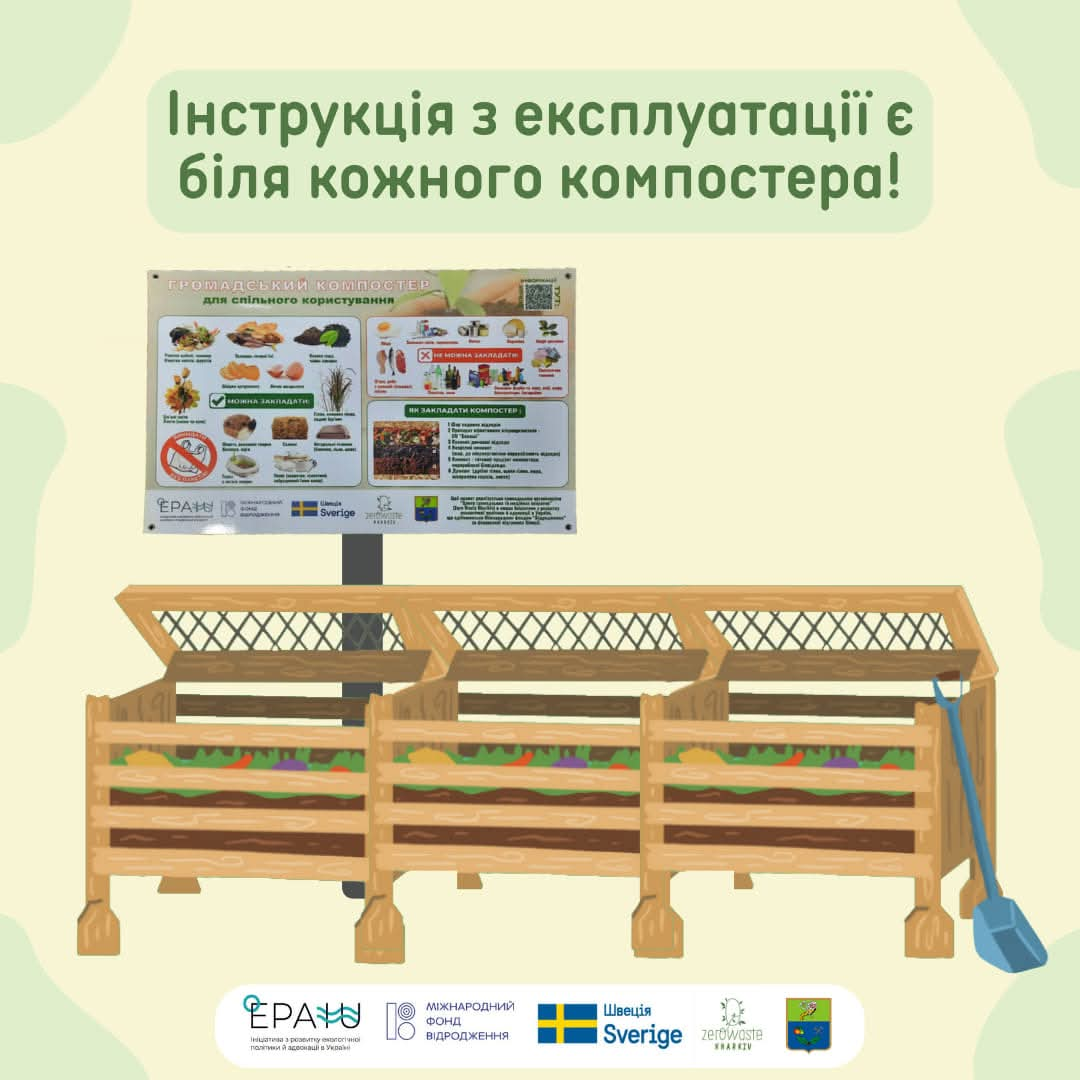
Instructions for use of the composter from Kharkiv Zero Waste’s informational materials. Graphics from the organization’s Facebook page
Communication is the most important aspect of such changes, says Hanna, drawing on the experience with composters. It’s also crucial that the communication is led by someone local, as outsiders are not trusted.
Losses and opportunities
In addition to the lack of experience among communities and insufficient communication from authorities at all levels, the war has significantly impacted the progress of changes in the waste management sector.
The demand for recyclables has drastically decreased and is recovering slowly. Many enterprises involved in recycling have suffered damage and destruction. Some have suspended operations, others have limited activities, and many have relocated to safer regions or even abroad, severing connections that took years to build.
In some areas, the volume of recyclables collected has also dropped significantly.
“Before 2022, we delivered recyclables to processors or collectors twice a week. In the first eight months of the war, we did it only twice”, - says Hanna Prokaieva.
For companies like TOP-ECO, this means operating at a loss. The company began looking for opportunities to participate in tenders for recyclable waste collection, which would provide payment for services they usually perform for free.
In one community, they managed to win such a tender. The tariff is symbolic—20 hryvnias ($0,50) per month—but it’s in addition to the main tariff residents pay to another company for the removal of unsorted waste to landfills. Some residents feel that the combined cost is too high, says Rostyslav Triska.
Certain recyclables have become difficult or impossible to sell. For example, Kharkiv Zero Waste struggles to find buyers for tin. On the other hand, the price of glass has risen. Previously, glass was more of a burden due to its heavy weight and negligible value, explains Yurii Nazar.
He himself has somewhat stepped away from waste collection activities and shifted to recycling. The company he co-founded produces durable and corrosion-resistant plastic panels from containers typically used in warehouses and stores to hold beer bottles and exotic fruits.
“We focused on recycling plastic that comes in tons and that few others want to work with”, - explains Yurii.
The enterprise is still building its client base and is not yet generating profit, he adds.
Kharkiv Zero Waste has also started working with new materials, such as 3D printer waste and construction debris resulting from destruction.
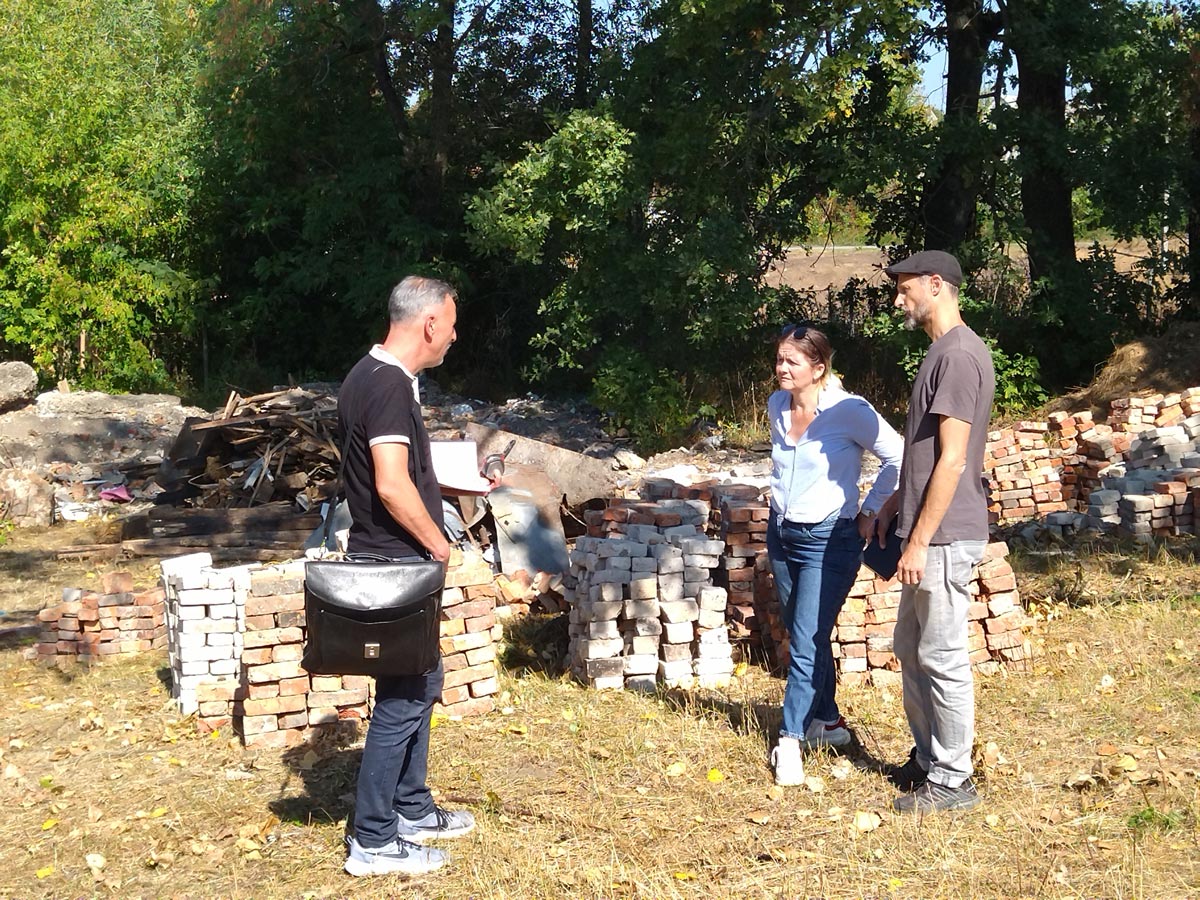
Bricks from dismantled buildings ready for reuse. Photo from Hanna Prokaieva’s archive
The organization has also begun accepting items suitable for restoring destroyed housing, such as windows, doors, and plumbing fixtures, including those brought in from abroad. These items are in high demand in the Kharkiv oblast, especially among those unable to receive government assistance for rebuilding.
This aligns with the primary goal of the Zero Waste movement—promoting the reuse of items instead of purchasing new ones. For Kharkiv, this is especially relevant not only because of the numerous russian attacks but also due to the city’s evident impoverishment, says Hanna.
“Waste management doesn’t start with sorting. It starts with preventing waste from being generated in the first place”, - she notes.
By Yuliia Abibok, OstroV





